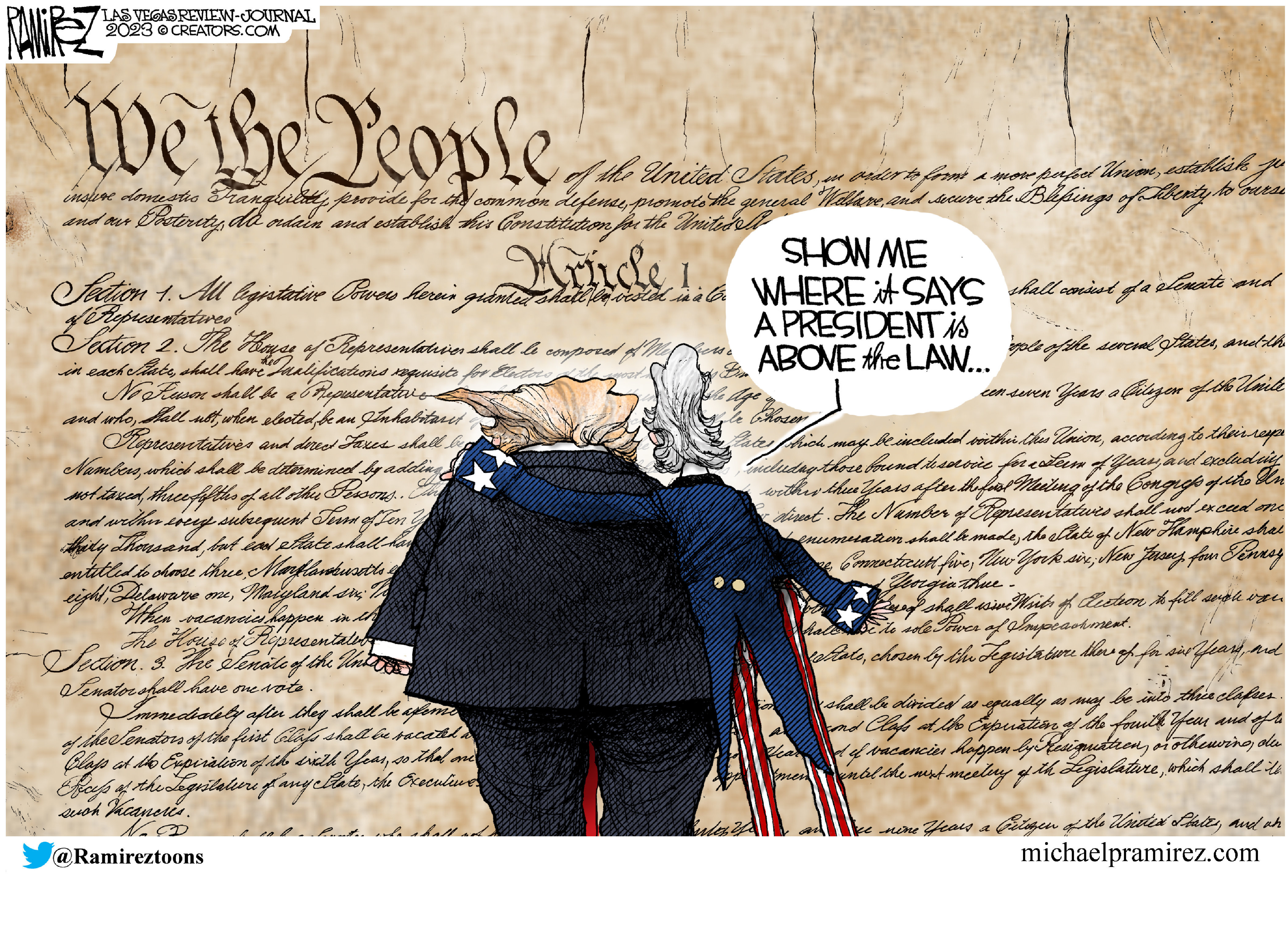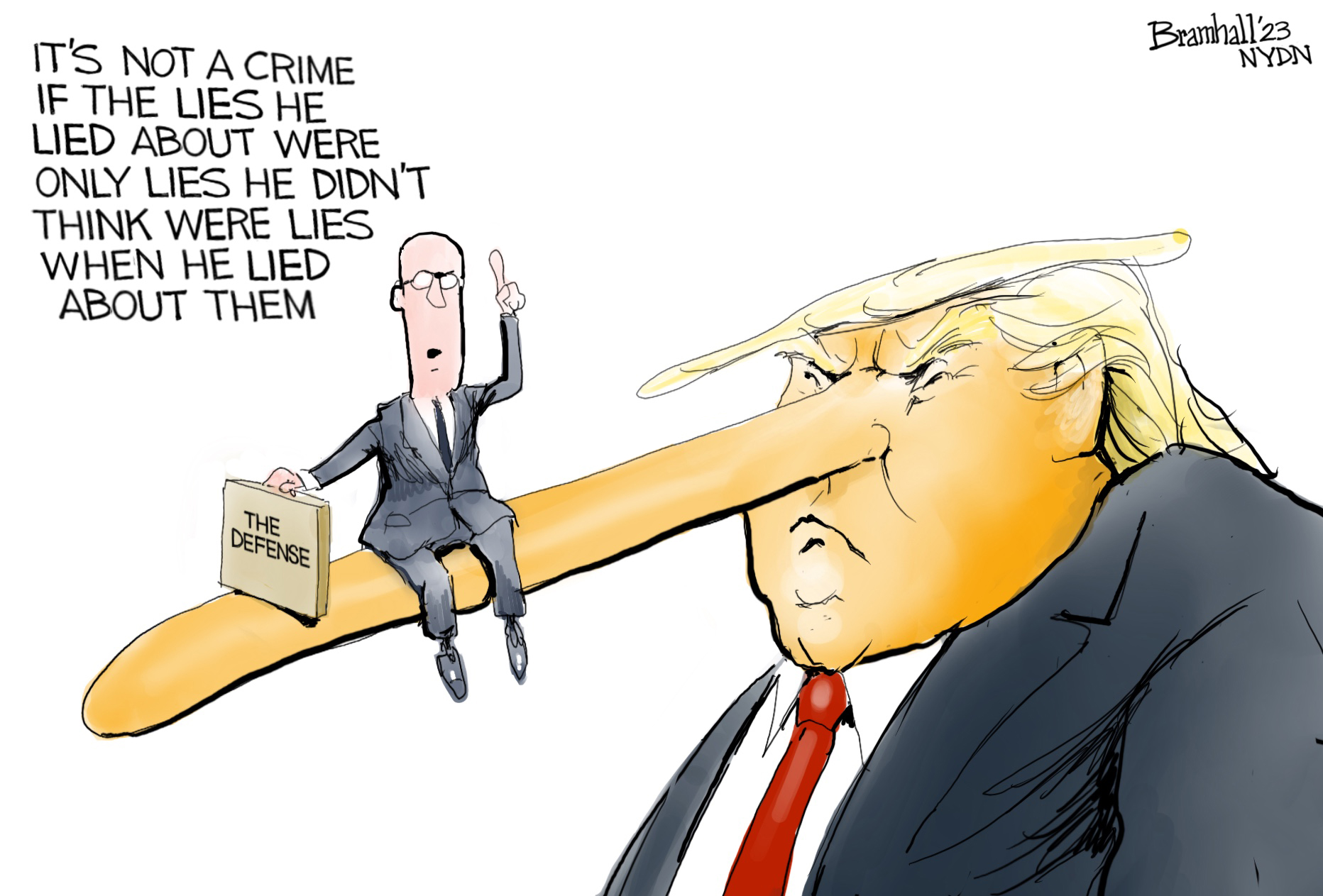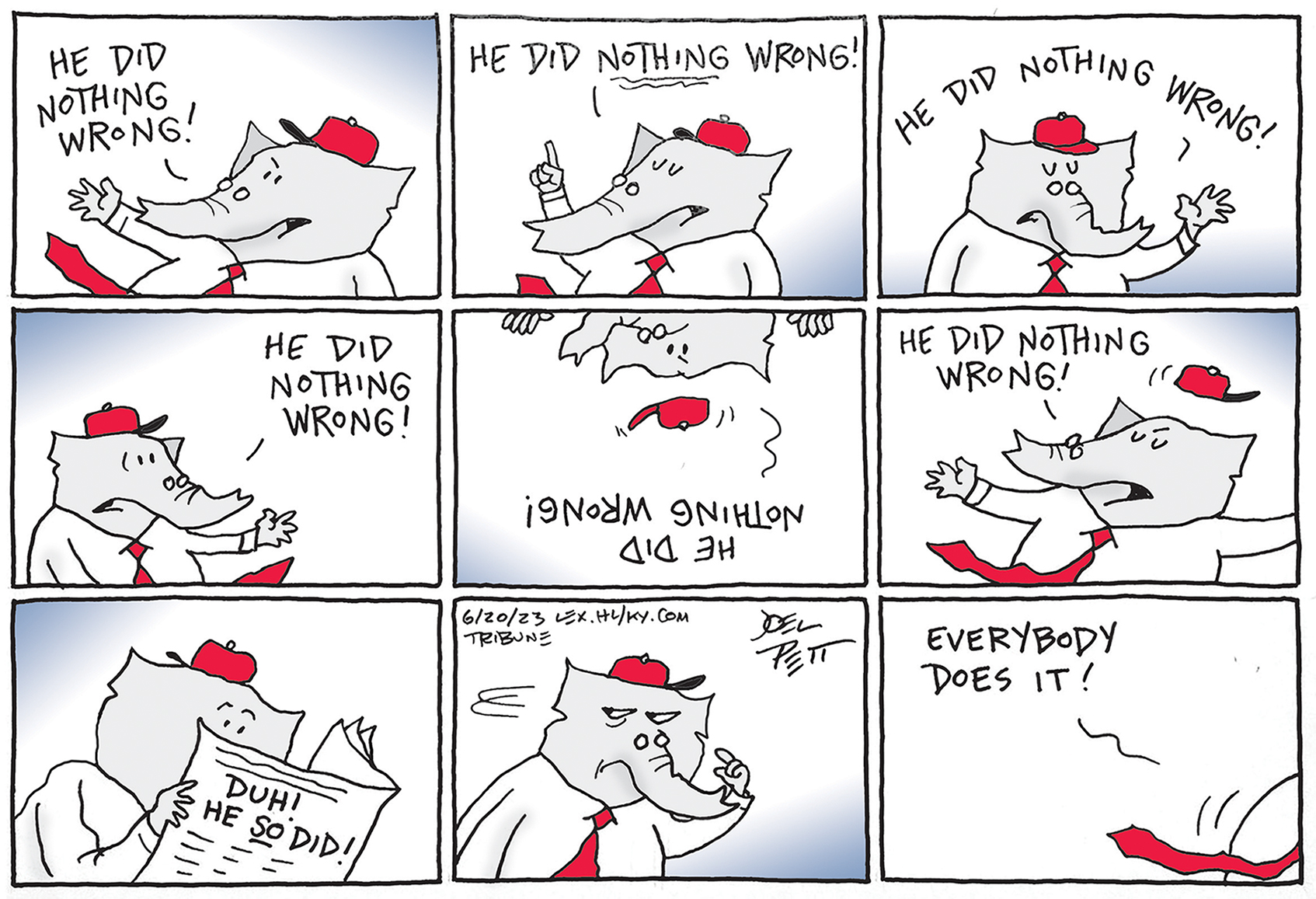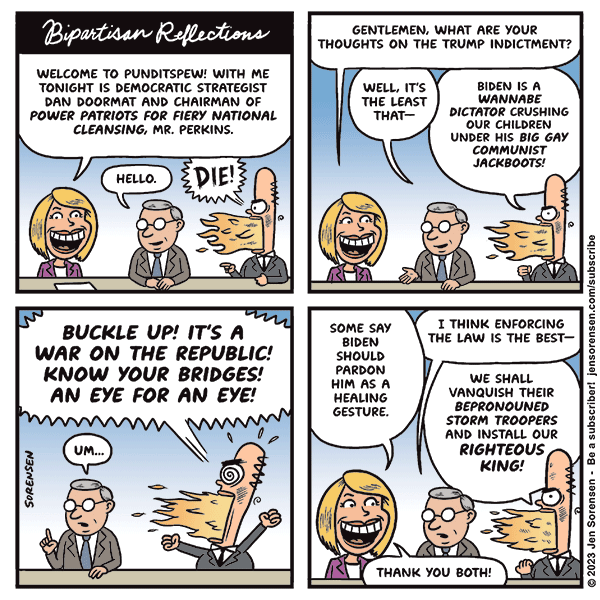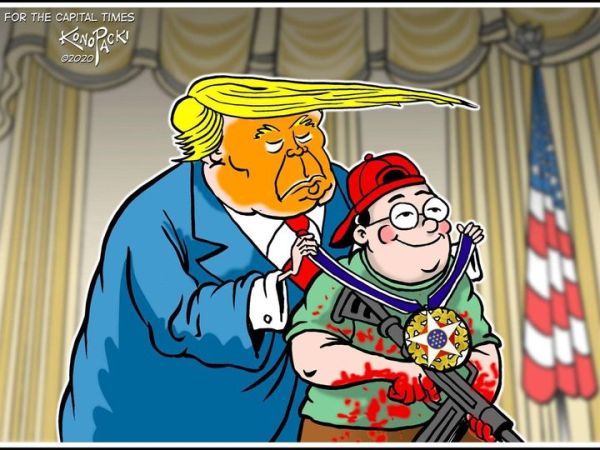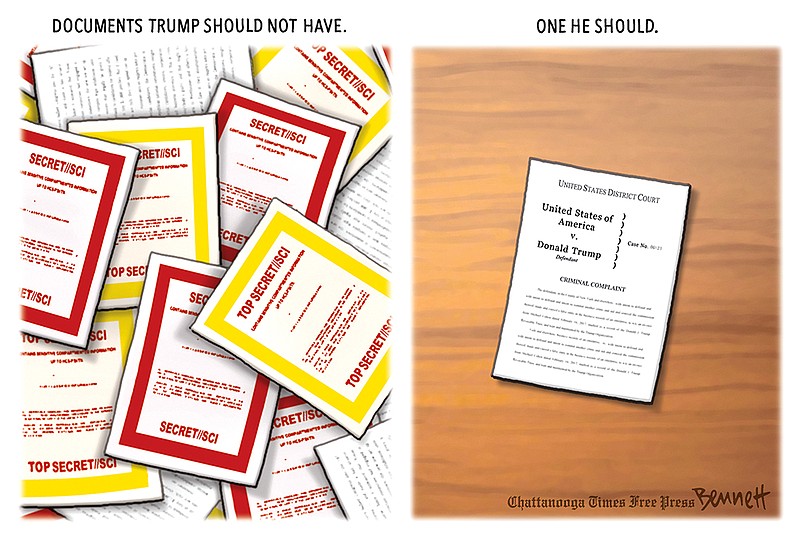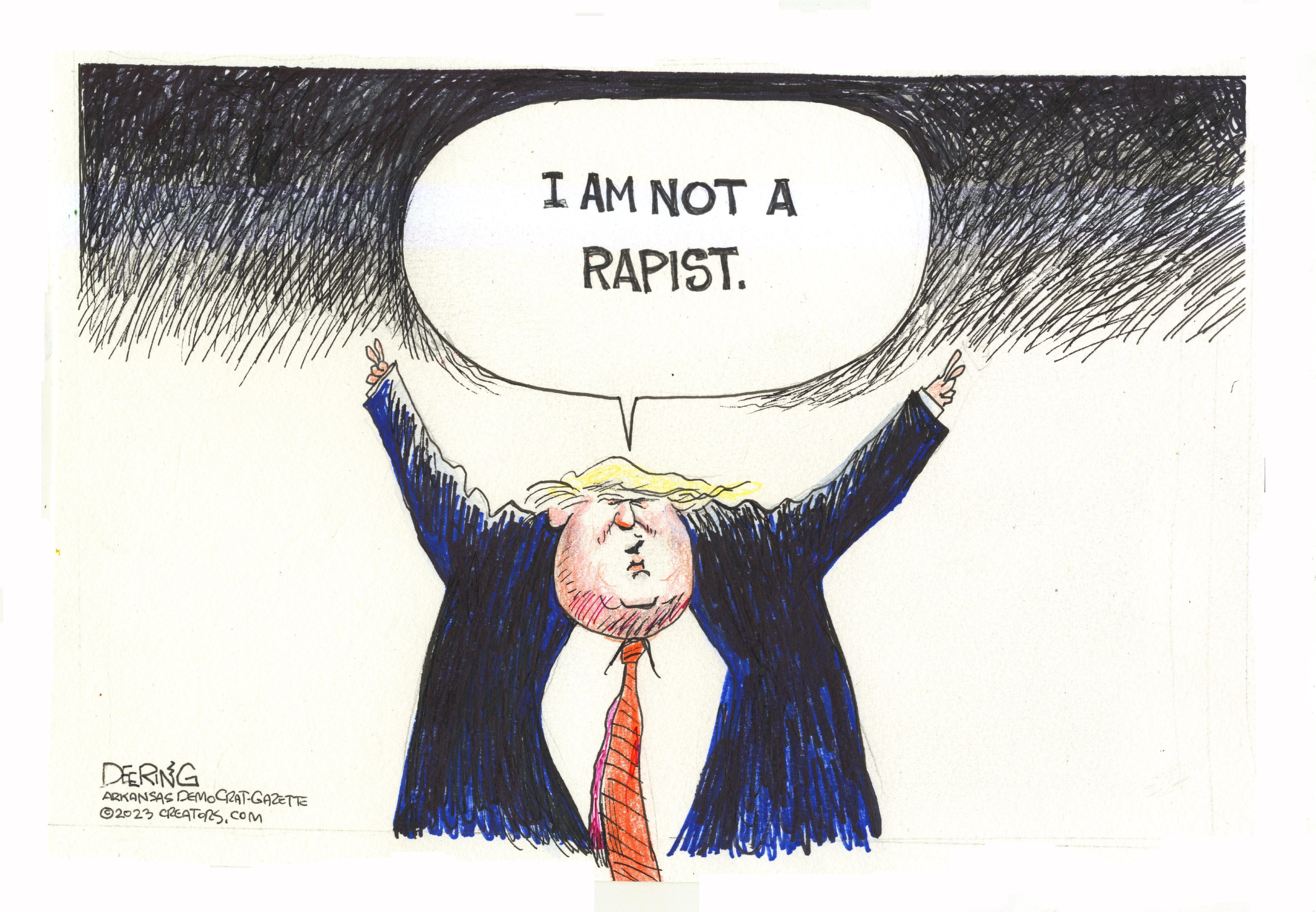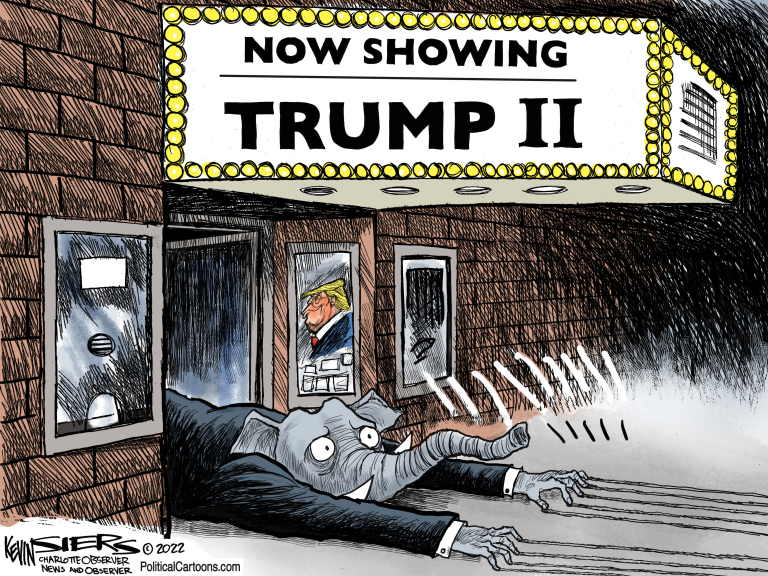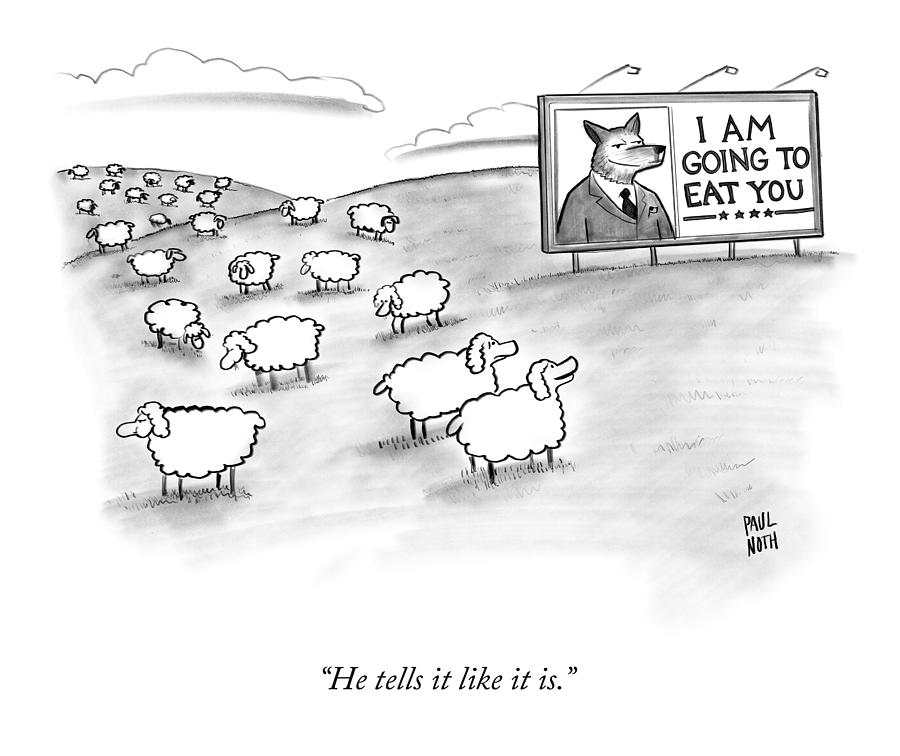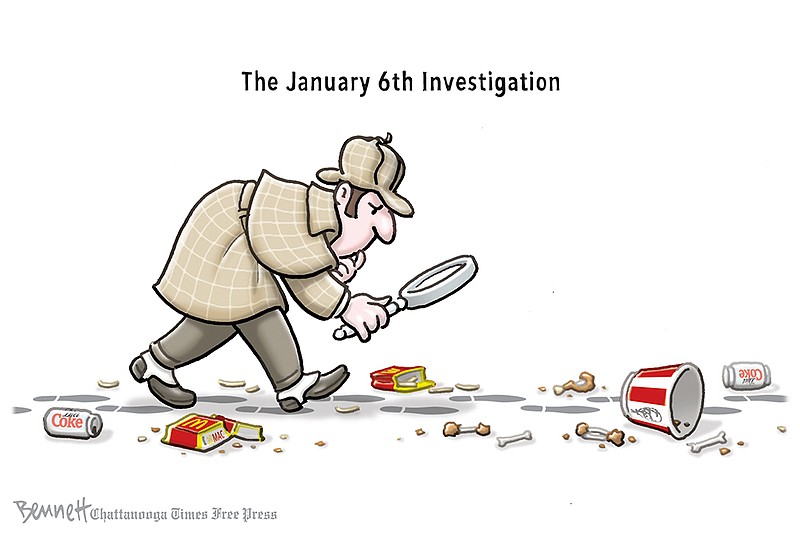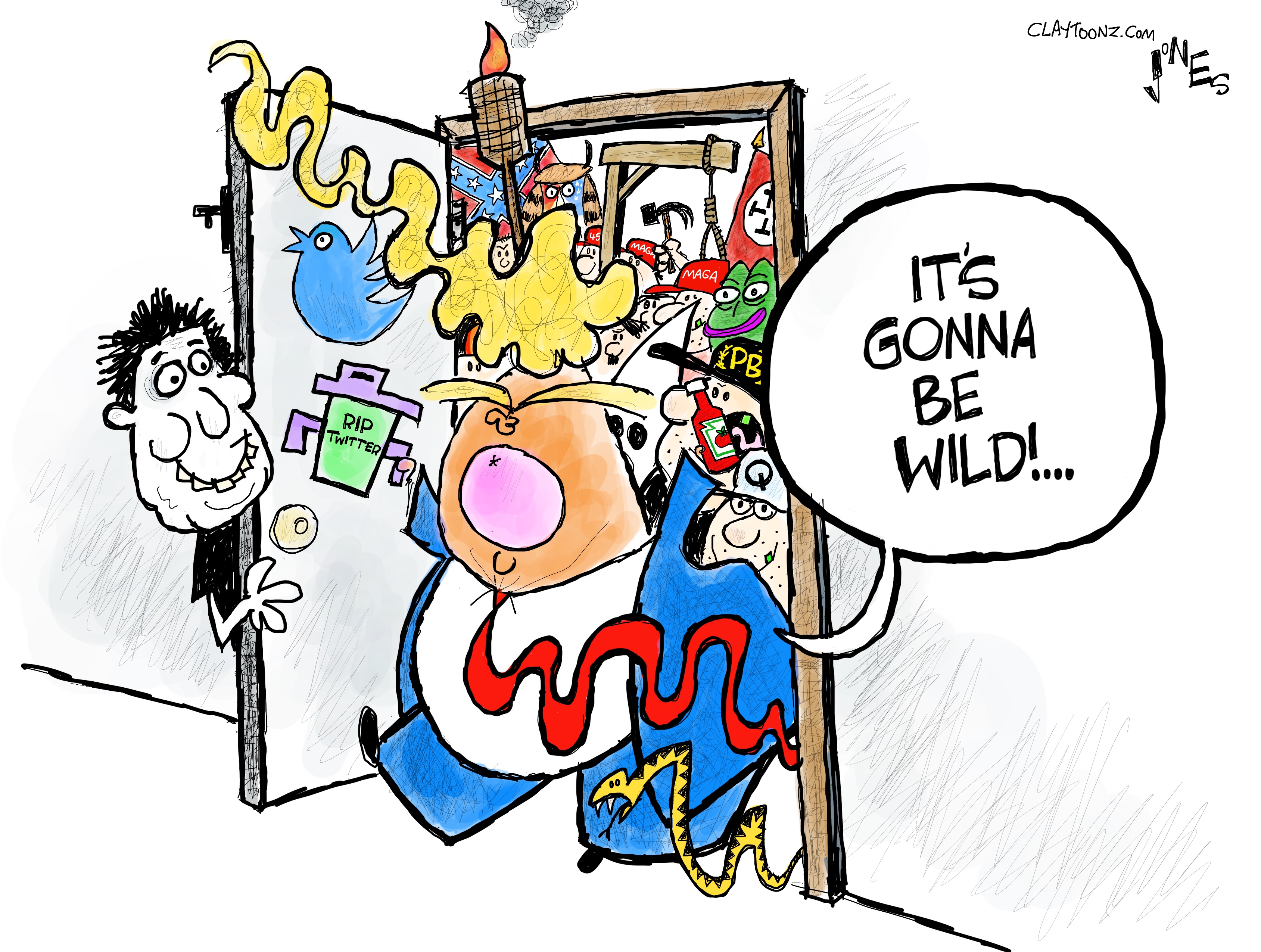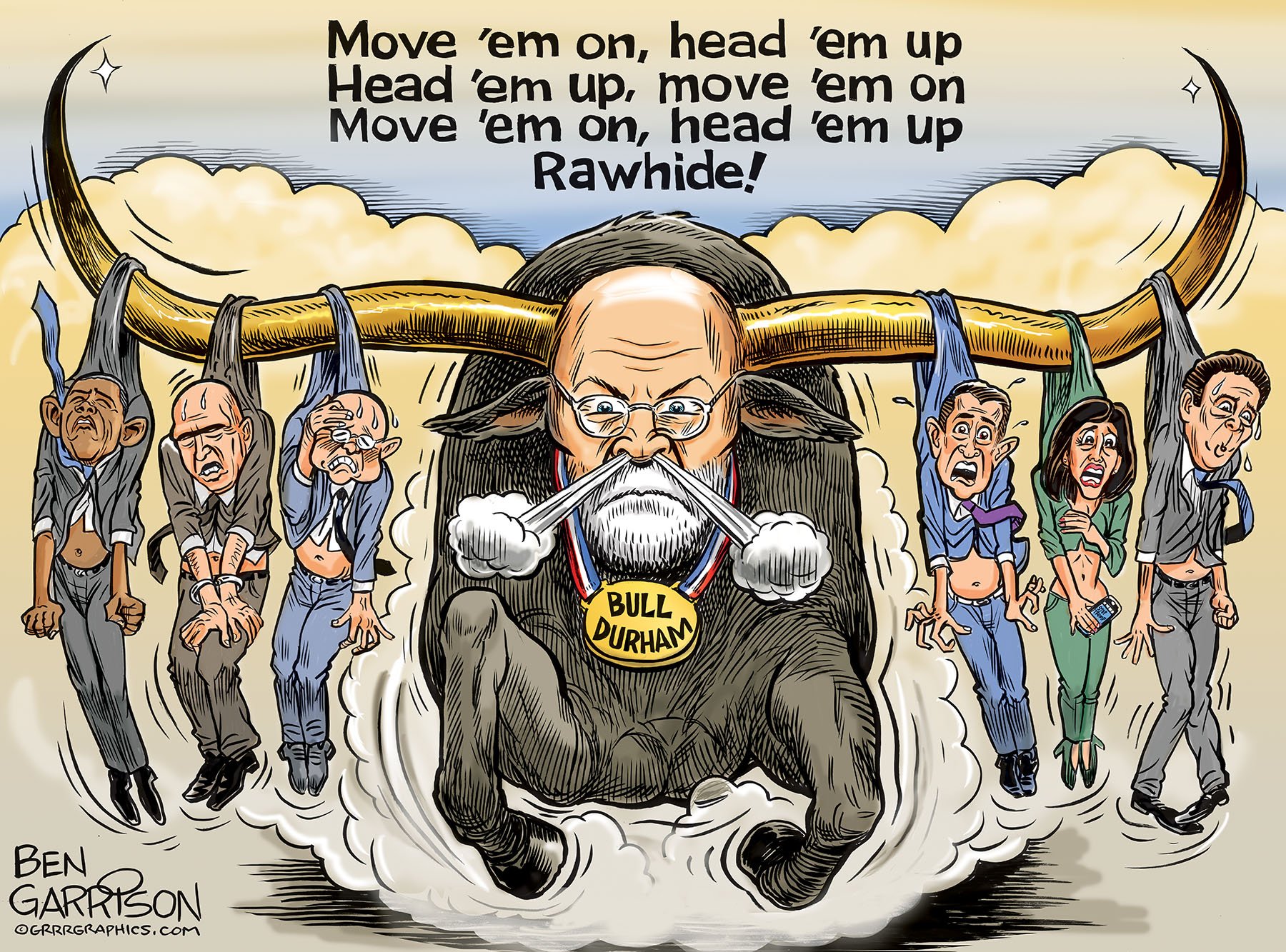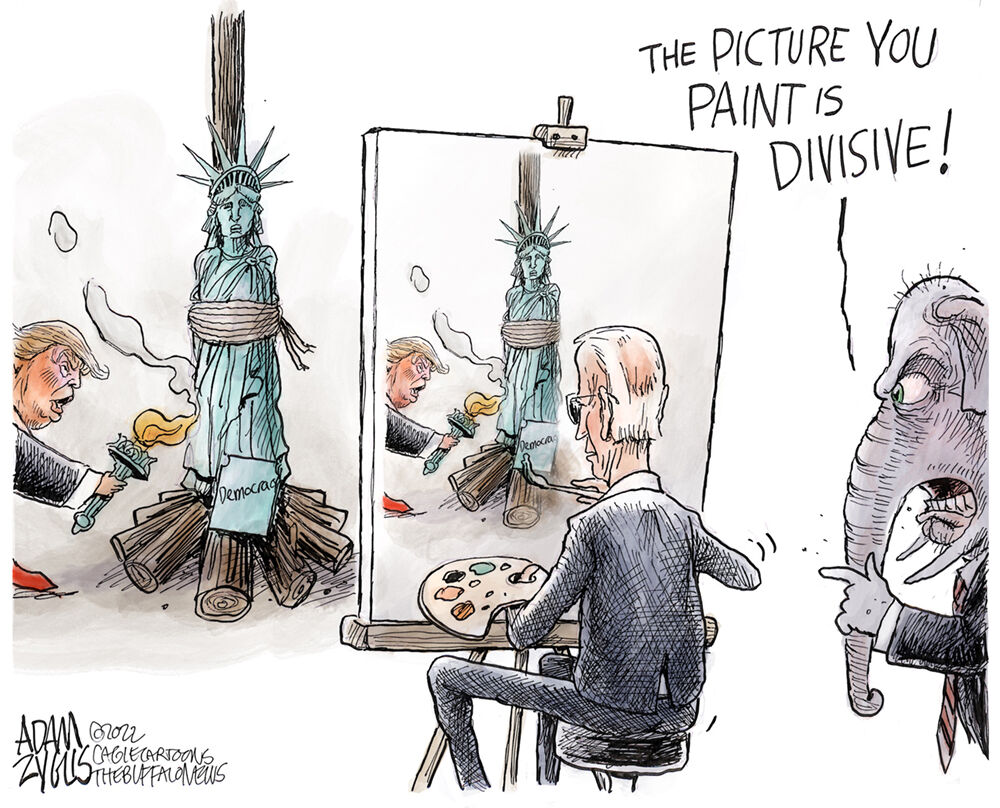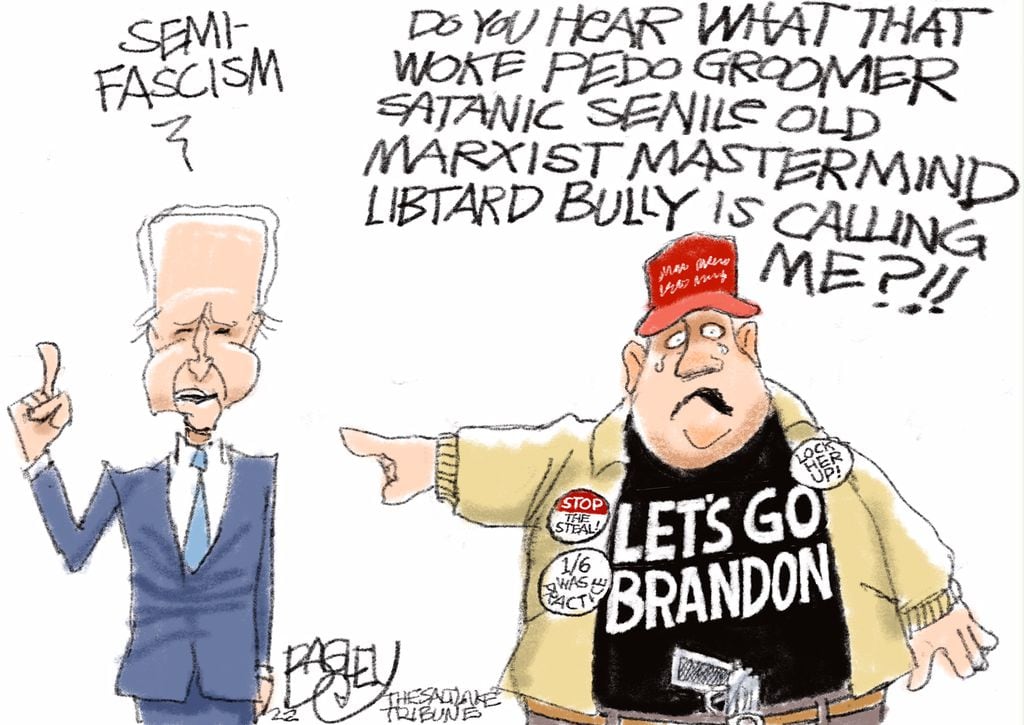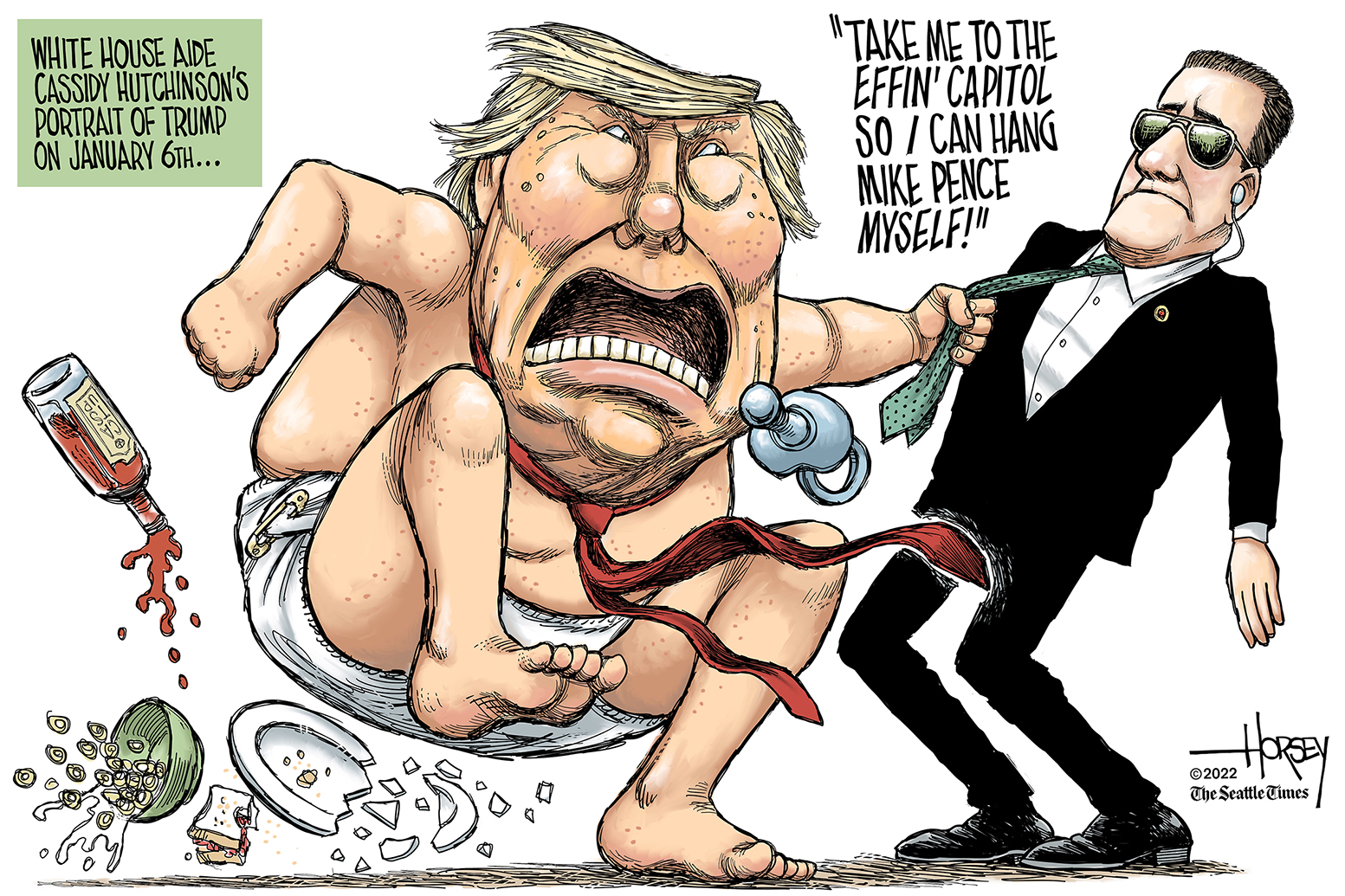
People who used to deny that Trump is a fascist have been changing their minds.
From the beginning of his first presidential campaign, it was clear Donald Trump was not like other candidates. The difference was not in political philosophy, because he barely seemed to have one. On any given day, he might be for or against a national healthcare program. He might want to raise or cut taxes on the rich. If “conservative” had been defined by Ronald Reagan and carried into the present by Republicans like Paul Ryan, then Trump was not a conservative.
Meanwhile, he celebrated his supporters’ violent tendencies, called Mexican immigrants rapists, and promised to ban Muslims from entering the country. Maybe we needed a different word for this. Maybe the word was fascist.
For years, the word fascist had mainly just served as an insult in American politics. Yes, there were people on the right-wing fringe who waved swastikas and celebrated Hitler’s birthday, but they had no power and nobody took them seriously. If you heard some congressman or cabinet secretary described as a fascist, it was hyperbole. No significant player in American government was literally a fascist. [1]
But maybe it was time to dust that word off as a serious descriptor. If you were going to do that in a responsible way, though, you had to be clear about what you were using the word to mean. It couldn’t just be “somebody more conservative than me” or “somebody I don’t like”. It needed a real definition that could be applied objectively.
And that was actually kind of tricky, because historical fascism has not displayed a defining set of policy positions, like communism’s public ownership of the means of production. Once in power, fascists become chameleons, championing whatever ideas their leaders find useful. Fascism often resembles a charismatic religion more than a political philosophy; the important thing is the spirit, not adherence to some 10-point plan.
But by November of 2015, I was ready to start using the word again, so I wrote “The Political F-Word” to say what I would mean by it. I said fascism was more about social psychology than politics, and described it as:
“a dysfunctional attempt of people who feel humiliated and powerless to restore their pride by:
- styling themselves as the only true and faithful heirs of their nation’s glorious (and possibly mythical) past, [2]
- identifying with a charismatic leader whose success will become their success,
- helping that leader achieve power by whatever means necessary, including violence,
- under his leadership, purifying the nation by restoring its traditional and characteristic virtues (again, through violence if necessary),
- reawakening and reclaiming the nation’s past glory (by war, if necessary),
- all of which leads to the main point: humiliating the internal and external enemies they blame for their own humiliation.”
I could easily see Hitler’s and Mussolini’s fascism in that description, and believed that it fit Trumpism as well, with its vague allusions to making America great “again” (without specifying when exactly that greatness was present or how it was lost), its persistent claims of persecution and victimhood, its emphasis on “owning the libs”, its hatred of immigrants, the violence of its rhetoric (which is frequently echoed in the manifestos of mass murderers), its focus on “real Americans”, and (most of all) the cult of personality around Donald Trump himself. [3]
The subsequent eight years, I believe, have borne out what I saw in 2015. The January 6 insurrection, for example, was a direct manifestation of “helping that leader achieve power by whatever means necessary, including violence”, and so are the current threats of violence against the prosecutors and judges who attempt to make Trump submit to the rule of law.
Still, not everyone agreed, and calling Trump a fascist was controversial. To many, fascist meant Hitler, and (whatever you might think of him) Trump was not Hitler. This week, Tom Nichols summarized his thinking like this: He was against using fascist through the 2016 campaign because
Trump, as a person and as a public figure, is just so obviously ridiculous; fascists, by contrast, are dangerously serious people, and in many circumstances, their leaders have been unnervingly tough and courageous. Trump—whiny, childish, unmanly—hardly fits that bill.
At the time, I thought this view was unhistorical, because Hitler also had seemed ridiculous to many Germans, even after he had become chancellor. But Nichols continued:
After Trump was elected, I still warned against the indiscriminate use of fascism, because I suspected that the day might come when it would be an accurate term to describe him, and I wanted to preserve its power to shock and to alarm us. I acknowledged in August 2022 that Trump’s cult “stinks of fascism,” but I counseled “against rushing toward the F-word: Things are poised to get worse, and we need to know what to watch for.”
Well, Nichols is now shocked and alarmed. What changed his mind? The same things that have swayed a lot of pundits lately: the escalating rhetoric that now routinely dehumanizes his opponents as “vermin” and immigrants as “poisoning the blood of our country“, coupled with a series of ominous proposals for his second administration:
Add the language in these speeches to all of the programmatic changes Trump and his allies have threatened to enact once he’s back in office—establishing massive detention camps for undocumented people, using the Justice Department against anyone who dares to run against him, purging government institutions, singling out Christianity as the state’s preferred religion, and many other actions—and it’s hard to describe it all as generic “authoritarianism.” Trump no longer aims to be some garden-variety supremo; he is now promising to be a threat to every American he identifies as an enemy—and that’s a lot of Americans.

Nichols is not alone. [4] Though The Economist does not use the F-word, it says that Trump “poses the biggest danger to the world in 2024”. WaPo’s Dan Balz also avoids fascist, but says his rhetoric is “associated with authoritarian leaders of the past”, whoever they might be. His colleague Aaron Blake puts recent Trump quotes side-by-side with Hitler’s use of the same language. The New Yorker’s John Cassidy warns that the 2024 election is
a struggle to prevent the election of a President whose embrace of fascistic imagery and authoritarian governance goes well beyond what comes out of his mouth.
In short, it’s not just the crazy things Trump says or how he says them. It’s what he’s done and plans to do.
The 2020 election plot. It’s important to realize that we’ve gone well beyond the point of Trump-says-a-lot-of-crazy-things. Openly fascist ideas and proposals are percolating in TrumpWorld right now, and are still not being taken seriously by many American voters. But before we go into those, we need to lay out what Trump has already done: launched a plot to stay in power after losing the 2020 election.
People who think we can put January 6 behind us tell the story like this: After it became clear that Trump had lost the 2020 election, he latched on to every rumor of fraud because he didn’t want to admit defeat. His stolen-election rhetoric resonated with his most radical supporters, and the result was a January 6 rally that got out of hand. Eventually, though, Trump told the rioters to go home and left office peacefully. He still may be claiming he won in 2020, but so what?
Both the evidence gathered by the House January 6 Committee [5] and the Georgia and D.C. indictments against Trump, though, tell a different story:
- As soon as it became clear that Trump was likely to lose the 2020 election, he began preparing to claim fraud and stay in office.
- Within a few days of the November 3 election, his campaign officials and other top advisors told him that he had lost.
- Within a few weeks, all his administration’s top investigators — Bill Barr in Justice, Chris Krebs at the Cybersecurity and Infrastructure Security Agency, and others — told him that his claims of election fraud had no basis in fact. No one in a position to know supported those claims.
- Republican officials in key states — Georgia, Michigan, Arizona — told him that the votes had been counted accurately. Again, no one in a position to know said otherwise.
- In order to find support for the view that he had won the election, Trump had to turn to amateur conspiracy theorists like Sidney Powell and Mike Lindell.
- Barr’s successors at Justice refused to send state legislators a letter falsely claiming that evidence of significant election fraud had been found and recommending that they reconsider their states’ electoral votes.
- Republican-controlled state legislatures all refused Trump’s urging to ignore the election results and appoint Trump electors instead of Biden electors.
- Officials close to Trump coordinated attempts in multiple states for Trump supporters to falsely claim to be electors, and to fraudulently cast Electoral College votes for Trump.
- His own vice president, Mike Pence, resisted his urging to count the votes of the fake electors, or to refuse to count electoral votes from states Biden had won.
- The January 6 assault on the Capitol was planned in advance by groups like the Proud Boys, and their leaders have been convicted of seditious conspiracy. A direct connection from the White House to the Proud Boys has not been nailed down in evidence publicly available, but may have gone through Roger Stone.
The more details come out, the clearer it becomes that this plot could have worked if only Trump had more yes-men in key positions. If the Justice Department had backed rumors of election fraud, Republican legislatures would have had cover to submit alternate slates of electors, and Mike Pence might have been convinced to count those votes, creating a constitutional crisis that the Supreme Court (with three Trump appointees) might have been unwilling to resolve in Biden’s favor. A military leader unlike Mark Milley might have provided troops to put down any subsequent disorder, and Trump would be President for Life. [6]
From the preparations for his second administration, we can conclude that Trump has learned a lesson from his first failed attempt to overthrow the constitutional order, and will not make the same mistakes again. He’ll appoint a compliant attorney general, a compliant vice president, and military leaders willing to do what they’re told. Former Trump Chief of Staff John Kelly put it like this:
The lesson the former president learned from his first term is don’t put guys like me … in those jobs. The lesson he learned was to find sycophants.
Plans for Trump’s second term. According to many reports, Trump did not expect to win in 2016, so he paid little attention to the transition plan drafted by Chris Christie. Top jobs were filled in a haphazard way, often with conservatives who had little previous connection to Trump, like General John Kelly, or with people like Senator Jeff Sessions, who backed Trump but retained independent views of how government was supposed to function. The Trump legislative agenda was largely left to Speaker Paul Ryan, who engineered a Reagan-style tax cut for corporations and the rich, but failed to “repeal and replace” ObamaCare.
As a result, Trump was frequently told that he couldn’t do what he wanted to do; it was illegal or unethical or against the norms of the federal government. By the end of his term, he had gotten rid of most of those people, but there were still enough establishment conservatives around to thwart his attempt to steal a second term.
He doesn’t want that to happen again, so plans are already in place to hit the ground running with sweeping proposals and a list of Trump loyalists ready to implement them.
Weaponize the Justice Department against his enemies. Trump claims that the indictments against him are purely political. [7] But rather than promise to restore the Justice Department to its proper function, Trump promises to do to his enemies what he (falsely) claims has been done to him. In an interview with Univision, he said:
What they’ve done is they’ve released the genie out of the box. … They’ve done indictments in order to win an election. They call it weaponization, and the people aren’t going to stand for it. But yeah, they have done something that allows the next party. I mean, if somebody if I happen to be president and I see somebody who’s doing well and beating me very badly, I say go down and indict them. Mostly what that would be, you know, they would be out of business. They’d be out they’d be out of the election.
At a New Hampshire rally in October, Trump said:
This is third-world-country stuff, “arrest your opponent”. And that means I can do that, too.
In general, I’m trying to source Trump’s second-term plans to his own words and quotes from allied organizations and named advisors, rather than anonymous sources (though the Mueller Report often attached names and testimony under oath to anonymously-sourced reports Trump had labeled “fake news” at the time). But I’ll make an exception for this quote from the WaPo:
In private, Trump has told advisers and friends in recent months that he wants the Justice Department to investigate onetime officials and allies who have become critical of his time in office, including his former chief of staff, John F. Kelly, and former attorney general William P. Barr, as well as his ex-attorney Ty Cobb and former Joint Chiefs of Staff chairman Gen. Mark A. Milley, according to people who have talked to him, who, like others, spoke on the condition of anonymity to describe private conversations. Trump has also talked of prosecuting officials at the FBI and Justice Department, a person familiar with the matter said.
One person who believes this account is John Kelly:
There is no question in my mind he is going to go after people that have turned on him.
Use the military against Americans. During his administration, Trump threatened to invoke the Insurrection Act, which allows deploying the active-duty military to enforce law and order within the United States itself. (During riots and natural disasters, governors may call out their state’s chapter of the National Guard, which consists of ordinary citizens and is the successor to the “militia” mentioned in the Constitution.) According to the NYT, he was talked out of doing so by Attorney General Bill Barr, Defense Secretary Mark Esper, and Joint Chiefs Chair Mark Milley — exactly the kind of appointees he will avoid in a second administration.
Instead, Trump reportedly plans to invoke the Insurrection Act on Day One of a second term. This would put the military on call to respond wherever he found it necessary.
Turn the federal government into a patronage machine. In the early days of the United States, the government worked according to the “spoils system”, in which federal jobs were plums a new president could award to his political allies. This led to a lot of corruption and inefficiency, so a series of reforms were passed that made most federal jobs nonpartisan civil service jobs.
Trump began trying to undo the civil service in his first term. A month before the 2020 election, he ordered the creation of “Schedule F” jobs — tens of thousands of positions formerly protected by civil service rules that would become fireable by the president.
Rather than take advantage of this power grab, President Biden reversed Trump’s executive order. But Trump has pledged to restore it if he regains office. Presidents already need to make about 4000 appointments when they take office, but Trump’s plan could cover ten times as many jobs. The Heritage Foundation’s Project 2025 is assembling a database of Trump loyalists who could fill those jobs. According to Axios:
intense attention will be given to the social-media histories of anyone being considered for top jobs. Those queasy about testing the limits of Trump’s power will get flagged and rejected.
Create massive detention camps for immigrants and the homeless. Trump has pledged to conduct “the largest domestic deportation operation in American history”, a statement fleshed out by Trump advisor and speech-writer Stephen Miller, who told the NYT:
Any activists who doubt President Trump’s resolve in the slightest are making a drastic error: Trump will unleash the vast arsenal of federal powers to implement the most spectacular migration crackdown. The immigration legal activists won’t know what’s happening.
Miller is talking about rounding up not just “illegal” immigrants, deporting “millions per year”, but also revoking the legal status of many others: foreign students who participate in demonstrations Trump disagrees with, immigrants granted temporary protected status because they escaped from countries the US deems unsafe, Afghans evacuated after the Taliban takeover, and others.
To help speed mass deportations, Mr. Trump is preparing an enormous expansion of a form of removal that does not require due process hearings. To help Immigration and Customs Enforcement carry out sweeping raids, he plans to reassign other federal agents and deputize local police officers and National Guard soldiers voluntarily contributed by Republican-run states.
To ease the strain on ICE detention facilities, Mr. Trump wants to build huge camps to detain people while their cases are processed and they await deportation flights. And to get around any refusal by Congress to appropriate the necessary funds, Mr. Trump would redirect money in the military budget, as he did in his first term to spend more on a border wall than Congress had authorized.
Trump has also proposed tent cities for the homeless, who would be arrested and relocated. [8]
The threat of non-action. In addition to the things Trump is planning to do in a second administration, we have to consider the things he might choose not to do: enforce the law against groups who do violence against his opponents. From the beginning, Trump has defended his supporters when they get violent, from describing two Trumpists who beat a homeless man in 2015 as “passionate” to saying “We love you. You’re very special.” to the January 6 rioters, whom he says he will pardon.
In the early Hitler years, the more serious threat was not that the official Gestapo would whisk you away to a concentration camp, but that the unofficial Brownshirts would beat or murder you with no interference from the police. Kristallnact was not police enforcing draconian laws, but hooligans running free. If you think the Proud Boys or Oath Keepers wouldn’t like to play a similar role today, you haven’t been paying attention.
[1] On the Right, the word communist is still used this way, as when Trump promised to “root out the communists, Marxists, fascists and the radical-left thugs that live like vermin within the confines of our country”. I doubt he could define communist, Marxist, or fascist. The words are simply barbs that he throws at people.
[2] Four years after my F-word post, Trump made this point clearly in his January 6 speech:
Just remember this: You’re stronger, you’re smarter, you’ve got more going than anybody. And they try and demean everybody having to do with us. And you’re the real people, you’re the people that built this nation. You’re not the people that tore down our nation.
[3] The 2020 Republican Convention, for example, refused to write a platform that would endorse any specific policies, but declared instead that it “enthusiastically supports President Trump” and would “enthusiastically support the President’s America-first agenda” — whatever turns that might take.
any motion to amend the 2016 Platform or to adopt a new platform, including any motion to suspend the procedures that will allow doing so, will be ruled out of order
Going forward, the Republican Party would be Donald Trump, and its policies would be whatever Trump said they were.
[4] You might think Nichols’ article would have an apologetic tone, something like: “You guys were right, he is a fascist.” But no. Those of us who saw further ahead than Nichols are to blame for “the overuse of fascist” that “wore out the part of the public’s eardrums that could process such words”.
I see it the other way: Maybe if people like Nichols had taken Trump’s fascism more seriously in 2015, more of the public could have processed the threat then, and we could have avoided this whole mess.
[5] Trump supporters discount the January 6 Committee’s findings because (after Kevin McCarthy pulled all of his appointees and Nancy Pelosi named Republicans Liz Cheney and Adam Kinzinger to replace them) no members of the committee defended Trump.
What this point ignores is that nearly all the testimony heard by the committee came from Trump appointees, Republicans at the state level who supported Trump’s 2020 campaign, and even members of the Trump family. There would have been more even testimony from Trump supporters if so many (including Trump himself) had not refused to testify. Steve Bannon, Mark Meadows, Jim Jordan, and Peter Navarro went so far as to defy subpoenas.
I can’t help believing that if any of those people could have testified to Trump’s innocence without committing perjury, they would have.
The possible bias of the Committee’s report was an issue in the recent hearing in a Colorado court about whether Trump is disqualified from being on the ballot in 2024 by the 14th Amendment’s insurrection clause. The judge’s ruling noted:
while Trump spent much time contesting potential biases of the Committee members and their staff, he spent almost no time attacking the credibility of the Committee’s findings themselves. The Hearing [in Colorado] provided Trump with an opportunity to subject these findings to the adversarial process, and he chose not to do so, despite frequent complaints that the Committee investigation was not subject to such a process. Because Trump was unable to provide the Court with any credible evidence which would discredit the factual findings of the January 6th Report, the Court has difficulty understanding the argument that it should not consider its findings
[6] You might think, “A second Trump administration would just be four years, because of the 22nd Amendment.” But already during the 2020 campaign, Trump floated plans to serve more than two terms.
We are going to win four more years. And then after that, we’ll go for another four years because they spied on my campaign. We should get a redo of four years.
Doubting his intent would be repeating another mistake Germans made with Hitler: believing that he didn’t really mean what he said. Hitler’s 1925 book Mein Kampf laid out much of what he wanted to do and later did, but many Germans refused to take his writings seriously.
[7] That position is hard to square with the evidence those indictments lay out. Trump has been indicted because he committed crimes.
In practice, Trump simply does not address the evidence against him. See the quote from the judge’s ruling in note [5].
[8] In this context, it’s worth pointing out that the Nazi death camps did not start out as death camps, and did not specifically target Jews. In the beginning, the camps housed “undesirables” like Communists. Over time, the definition of “undesirable” expanded, and the limits of what could be done to them loosened.
